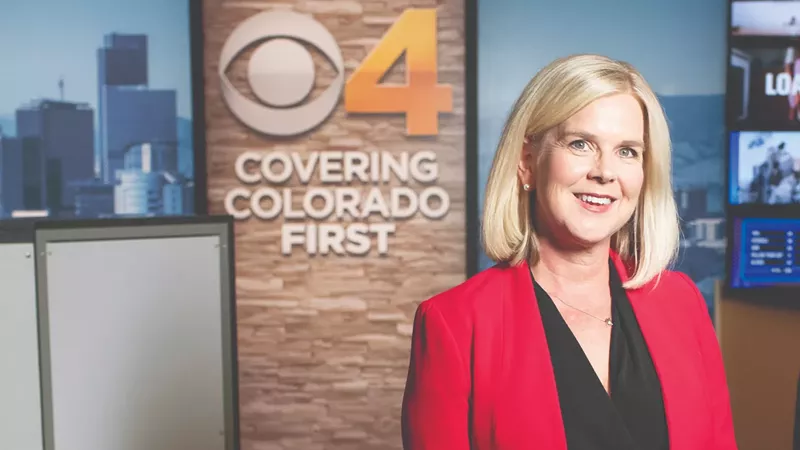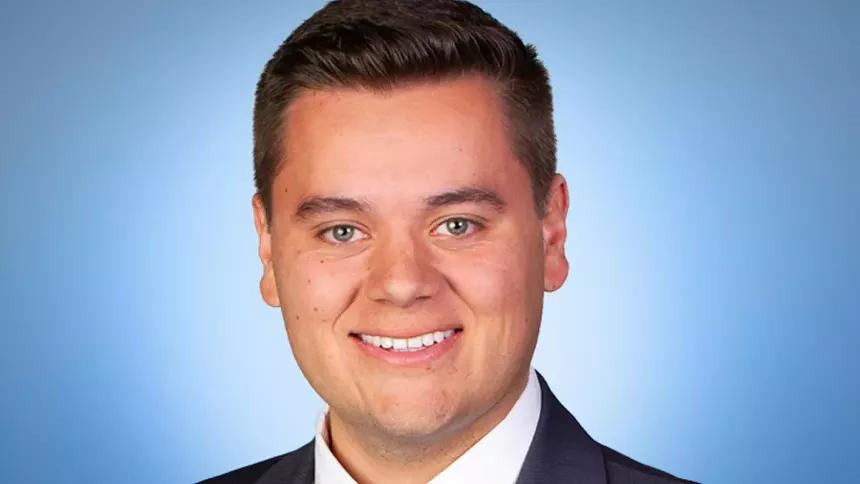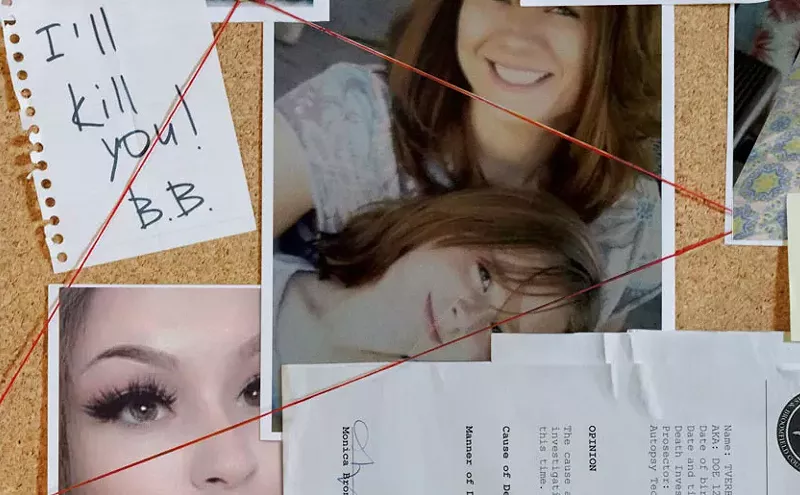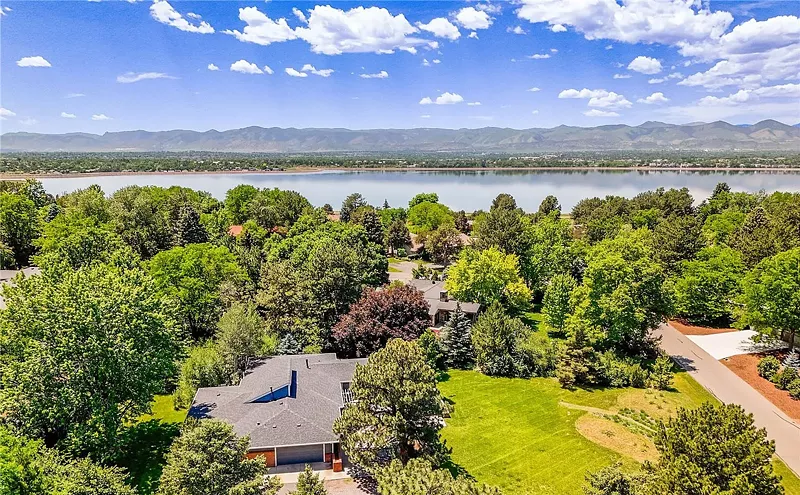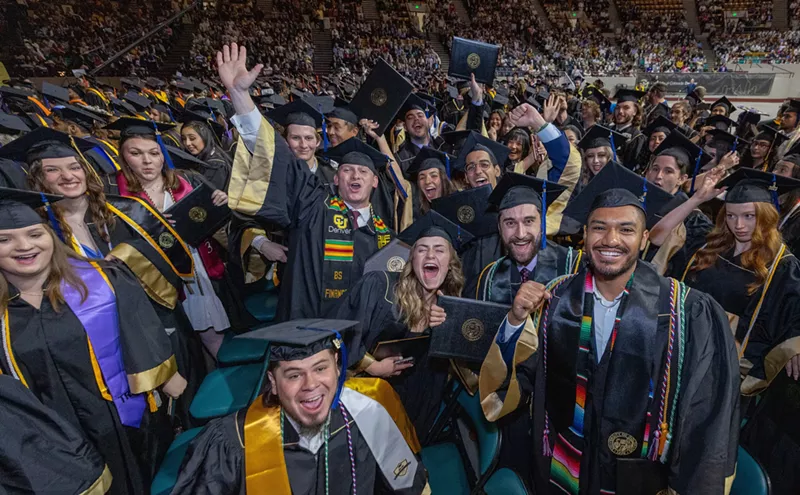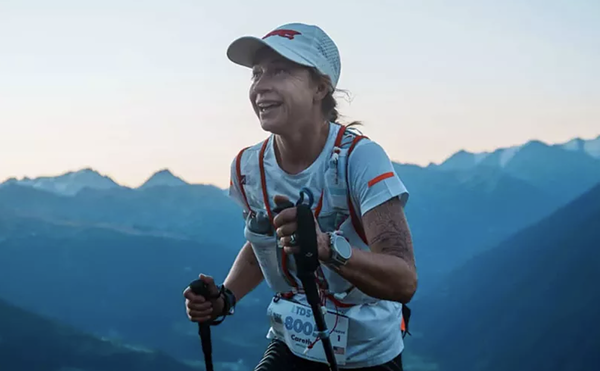Local television news is often derided for superficiality — for pushing sensational coverage of events rather than choosing less obvious but more impactful stories. And Tim Wieland, vice president and general manager of CBS4 Denver, admits that such criticism can be justified.
"What we know about the audience today is that when they watch local news, they very often don't see their community, they don't see their neighborhood, they don't see their lives reflected in the product," he says.
In an attempt to address this issue, CBS4 Denver has launched what it's calling neighborhood newsrooms. But the station isn't building physical outposts across the Front Range; instead, most reporters and anchors working under news director Kristine Strain, who devised the plan, have been assigned to cover happenings in places where they actually live, and they're encouraged to get to know the people who are making things happen there. For example, reporter Marissa Armas and anchor Jim Benemann, who's set to retire at year's end, will focus on coverage in Denver, reporter Connor McCue and anchors Karen Leigh and Dominic Garcia are set to specialize in Douglas County news, and reporter Alan Gionet has been handed the responsibility for delving into the foothills and Boulder County.
The concept theorize that if CBS4 Denver's journalists become experts about communities in which they're personally invested, they'll find topics that non-residents might miss and be able to present them in greater detail.
"Having geographic beats isn't anything new in the news business," Wieland concedes. But he sees the neighborhood initiative as a timely twist on the approach that will create a bond with viewers "who often can't relate to what's in the newscast because it seems so distant from their life. And I think that's a product of not being in their community."
A 27-year veteran of CBS4 Denver, as well as the outlet's former news director, Wieland says that "the desire for local news is as great or greater than I've ever seen it, and yet most of us aren't serving the audience in that way. We're covering the basic stories of the day pretty well, and in some cases offering analysis. But we're not really getting into our communities, and this initiative is intended to address that. In nearly every case, the reporter or anchor lives in that community, and there's a natural fit, because they're already connected to the community. They won't cover a story from their community every day, but the idea is that they'll spend more time in that community making grassroots contacts and getting a better understanding of the community's issues."
Too often, he continues, "a press release comes out or we know there's going to be a city council meeting tonight that's going to have a really important decision, so we go to the meeting — and sometimes we're covering that issue for the first time. And even though we'll do an okay job of reporting, it won't have real depth — and the people who live there can tell. They'll know someone dropped in for a meeting and covered that one issue. So the goal of this project is to develop real relationships in the community and develop original content. That way, we won't be showing up for the first time when a major decision is coming up. It'll be an issue we've already covered and we've seen the community evolve on that subject. And that should really make a difference."
As an example, he offers reporter Dillon Thomas, whose area of focus is northern Colorado. "He lives there and he's somebody who, over the past couple of years, has really done the work to understand the particular issues there," Wieland says. "That makes him an obvious fit for that beat, and when I see a story that comes out of Fort Collins or Loveland or Windsor or Greeley, I always feel Dillon's reporting offers something others don't, because of how familiar he is with the area."
Back in 2018, CBS4 Denver launched Together for Colorado, which put an emphasis on positive stories that defied the if-it-bleeds-it-leads stereotype, and Wieland sees a philosophical kinship between this predecessor and the neighborhood newsrooms. "I think we learned from Together that people want reporting that's solution-oriented and hopeful," he says. "But there's also a real appetite and interest in having that level of reporting applied to the most serious and pressing topics in communities."
Because doing justice to such material in the quick-moving format of most TV newscasts isn't easy, Wieland stresses that "some of these reports will run longer than a traditional news story. And we've also talked a lot as a team about using our streaming platform to run deeper reports on a topic. We've done things we call 'community conversations' — thirty-minute conversations about issues in that community — and we've asked reporters to keep an eye out for an opportunity to do that. We want to bring different parties together, so it could take the form of a town hall or one particular person who we interview in depth or even a Q&A between an anchor and a reporter. We're not time-constrained on our streaming channel, which has become a terrific outlet for community journalism."
Sounds like the neighborly thing to do.

Audio By Carbonatix
[
{
"name": "GPT - Billboard - Slot Inline - Content - Labeled - No Desktop",
"component": "23668565",
"insertPoint": "2",
"requiredCountToDisplay": "2"
},{
"name": "STN Player - Float - Mobile Only ",
"component": "23853568",
"insertPoint": "2",
"requiredCountToDisplay": "2"
},{
"name": "Editor Picks",
"component": "17242653",
"insertPoint": "4",
"requiredCountToDisplay": "1"
},{
"name": "Inline Links",
"component": "18838239",
"insertPoint": "8th",
"startingPoint": 8,
"requiredCountToDisplay": "7",
"maxInsertions": 25
},{
"name": "GPT - 2x Rectangles Desktop, Tower on Mobile - Labeled",
"component": "24956856",
"insertPoint": "8th",
"startingPoint": 8,
"requiredCountToDisplay": "7",
"maxInsertions": 25
},{
"name": "Inline Links",
"component": "18838239",
"insertPoint": "8th",
"startingPoint": 12,
"requiredCountToDisplay": "11",
"maxInsertions": 25
},{
"name": "GPT - Leaderboard to Tower - Slot Auto-select - Labeled",
"component": "17676724",
"insertPoint": "8th",
"startingPoint": 12,
"requiredCountToDisplay": "11",
"maxInsertions": 25
}
]

